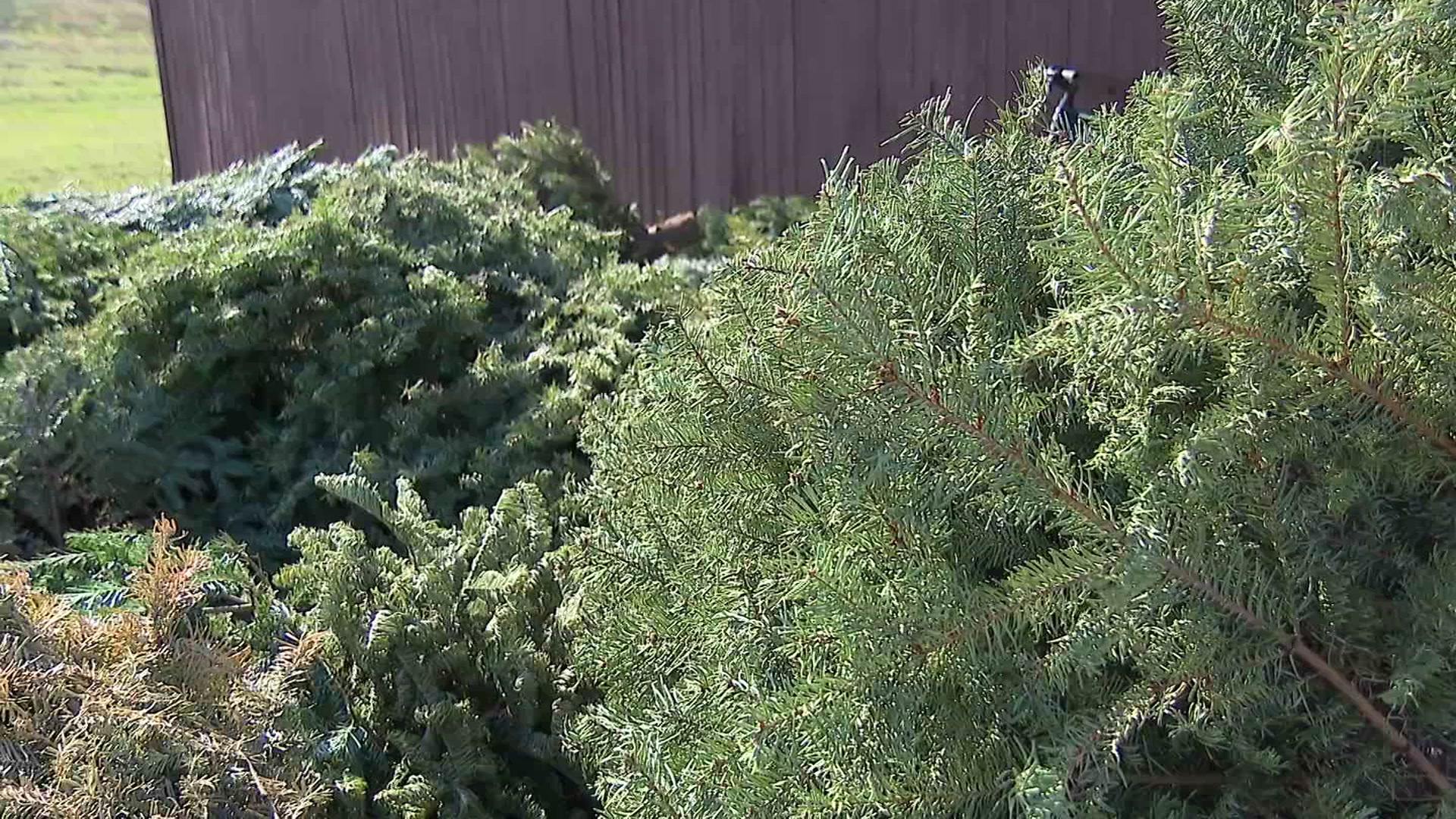Water systems across the state have been racing to upgrade their systems after millions of Texans struggled with water outages during last year's winter storm. By March 1, utilities must submit plans to the state showing how they'll keep water flowing from your tap if disaster hits again.
"Every year we learn something new, and we apply it to our system," said Hector Ortiz.
Ortiz is the water production superintendent for the city of Denton.
He says while his team felt prepared going into last year's storm, the harsh conditions and extended outages provided many important lessons.
Get top local stories in DFW delivered to you every morning. >Sign up for NBC DFW's News Headlines newsletter.
Ortiz took NBC 5 on a tour of the City of Denton's Lake Lewisville water treatment plant.
One year ago his team watched flow rates climb as temperatures plunged while people dripped their faucets and pipes started leaking and bursting across the area. All of the activity lead to unprecedented demand on the system just as the power went out.
"We couldn't keep the tanks full. We were limited in capacity due to power outages," said Ortiz.
Local
The latest news from around North Texas.
Denton and many other water systems across the state issued boil water advisories as the water pressure dropped.
Widespread outages left residents like Delene Johnson without water for two weeks.
"This same water that you need to bathe with, flush the toilet with and all that," Johnson said. "I would cry, I was depressed."
Johnson is a home health care worker and says going weeks without water took a toll on her mental health. She says she got by using buckets of water donated from a nearby church. Johnson saved the buckets to help prepare for future storms.
The state wants utilities to make sure residents don't have to go through that again. Last year, lawmakers passed Senate Bill 3. It requires utilities to submit emergency preparedness plans to the Texas Commission on Environmental Quality (TCEQ) showing how they'd supply water during extended power outages of more than 24 hours at a minimum pressure of 20 psi, which is the minimum pressure for firefighters to do their jobs.
Ortiz produced a Facebook video explaining Denton water's winter preparations. Among several changes, he says they've added more portable generators and heat trace, cables inside the pipes to keep water lines from freezing.
"A lot of our fleet, diesel vehicles got affected, like badly. Some of the diesel trucks, we couldn't even move for three days. And so we actually made sure that they're all equipped with the engine heaters," Ortiz explained.
They're also better coordinating with local power generators to make sure they're on the critical load list to keep the power on.
"It's like a hospital. So a hospital, you know, you don't want a hospital going out of power. During a storm event, it's, on par with that," said Stephen Gay, Director of Water and Wastewater for the city of Denton.
NBC 5 also toured the North Texas Municipal Water District's (NTMWD) plant in Wylie. It serves roughly 2 million customers in 80 communities.
This time of year, demand is usually low and crews shift some of their focus to maintenance and future projects for the busy summer season. Last year's storm showed them they need to be ready to scale up capacity quickly.
If cell towers go down, they now have backup communication plans. They've also purchased new diesel tanks and large generators. The company contracted with for service was unable to get to them during the 2021 winter freeze.
"Plug those in, get a pump station back up and running, get one of our buildings back up and running," said NTMWD Asst. Deputy of Water and Conveyance Zeke Campbell.
Campbell says they already had $50 million slated for capital improvements before the storm. Now, they're investing more, on the road to becoming more self-sufficient.
"We've had about another $22 million that we've identified post-winter storm where we need to make some upgrades because the grid system was not as resilient as we had thought," he said.
Campbell they've also added more distribution centers with stockpiles of sand, salt and snowmelt. They're spreading resources out closer to critical locations where they may need them, instead of a large central location that could be hard to access during winter weather.
NTMWD also secured more cots and coveralls for workers. Many also live in the community they serve and also depend on these plants to keep the water flowing for their families.
"It's important to us as well. Water is life. And it's something that, you know, sometimes it's taken for granted. And when you don't have it, it certainly makes an impact on your life," Campbell said.
The emergency preparedness plans have to be submitted to TCEQ by March 1.
If systems worry the cost of implementing an EPP will be too much of a burden for customers, they can apply for a financial waiver. A spokesperson from TCEQ tells NBC 5 that the department has already received some waiver requests and is currently reviewing the requests.



